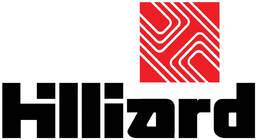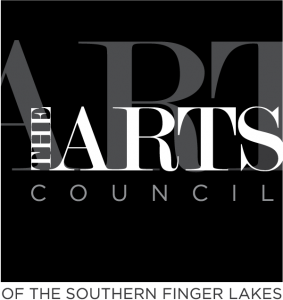Barely one hundred years ago, before the record player and radio made it possible for people to hear recordings of music in their homes, all music was experienced in live performance. Everyone went to hear the orchestra, if their community was fortunate enough to have one. And while today technology makes it possible to carry every piece of music ever recorded in our pockets, the experience is nothing like being in a concert hall with hundreds of other music lovers and hearing an orchestra performing live.
You feel the music resonate in your body, and many would say, in your soul.
A century ago people from all walks of life shared in this experience of live orchestra music: families, young couples courting, factory workers and the people who owned the factories. It was open to everyone then, and it still is.
We want you to know that you are welcome and appreciated at every concert.
Your experience is important to us, even if symphonic music is new to you.
You feel the music resonate in your body, and many would say, in your soul.
A century ago people from all walks of life shared in this experience of live orchestra music: families, young couples courting, factory workers and the people who owned the factories. It was open to everyone then, and it still is.
We want you to know that you are welcome and appreciated at every concert.
Your experience is important to us, even if symphonic music is new to you.
Myths about Orchestra Concerts: Busted!
Myth: You have to get "all dressed up" to attend a concert.
Reality: We think people enjoy concerts most when they are comfortable. Formal attire is not required at Orchestra concerts.
You'll see concert goers in suits and dresses, but also in sweaters, skirts, khakis, jeans… everything!
Myth: Only the "Experts" can truly appreciate great music.
Reality: Everyone experiences music in a very personal way and no two people will have identical reactions.
Though some people choose to study music as a hobby or profession, we believe your opinion is just as important.
Myth: Orchestra concerts are only for the rich or well-heeled.
Reality: Great music attracts people from all ages, income levels, and education. The Orchestra of the Southern Finger Lakes strives to make ticket prices affordable across a range of budgets, and children under 18 are admitted free.
Reality: We think people enjoy concerts most when they are comfortable. Formal attire is not required at Orchestra concerts.
You'll see concert goers in suits and dresses, but also in sweaters, skirts, khakis, jeans… everything!
Myth: Only the "Experts" can truly appreciate great music.
Reality: Everyone experiences music in a very personal way and no two people will have identical reactions.
Though some people choose to study music as a hobby or profession, we believe your opinion is just as important.
Myth: Orchestra concerts are only for the rich or well-heeled.
Reality: Great music attracts people from all ages, income levels, and education. The Orchestra of the Southern Finger Lakes strives to make ticket prices affordable across a range of budgets, and children under 18 are admitted free.
First-Timers' Guide/FAQ
We're so glad you're coming to hear the orchestra. As a first-time attendee, we want you to know what to expect when you arrive. So, we've put together some tips designed to make your first trip to the orchestra a pleasant one.
1. What is classical music?
The term "classical music" can mean anything from music written hundreds of years ago to music written last week. You probably have heard of Bach, Mozart, Beethoven and Tchaikovsky, but we promise you'll have heard their music. Generally, classical music is played by a symphonic ensemble composed of strings (violins, violas, cellos and basses), woodwinds (clarinets, oboes, flutes and bassoons), brass (trumpets, French horns, trombones and tubas) and percussion (drums, xylophones and bells), or some combination thereof.
You can learn about all the instruments of the orchestra, and the music they make in these wonderful videos by the Philharmonia Orchestra of London HERE.
2. Will I enjoy the concert?
Absolutely! Classical music is exciting, surprising, and quite often funny. When you join us in the concert hall, you'll learn why Haydn called it the "Surprise" Symphony, you'll hang on every note of the third movement of Beethoven's Ninth Symphony, you'll giggle at Ives' Three Places in New England, and you'll be in awe of Strauss' Also Sprach Zarathustra.
3. Will I recognize any music?
Odds are, you'll recognize far more than you realize. Many of today's popular songs, television shows and movies include or are taken from classical themes, like the Lone Ranger theme (Rossini's William Tell Overture), the Bugs Bunny cartoon "What's Opera, Doc?" (Wagner's Ride of the Valkyries), United Airlines commercials (Gershwin's Rhapsody in Blue), and many more.
4. What's the difference between an Orchestra concert and Chamber Music?
At an Orchestra concert the entire symphony orchestra, usually 60 or more musicians, will perform, led by a conductor. In Chamber Music, only a few musicians perform together. Chamber Music concerts are very intimate, whereas orchestra concerts are intended for larger audiences.
5. How long are concerts?
Normal concerts are usually about two hours including an intermission.
6. What should I wear to hear the Orchestra of the Southern Finger Lakes?
Wear whatever makes you comfortable. Contrary to what many people think, you are not required to wear formal attire like tuxedos and evening gowns at Orchestra concerts. You'll see concert goers in suits, dresses, sweaters, skirts, khakis, jeans, everything!
7. When should I clap?
Generally, it is considered proper concert etiquette to clap only after a piece is complete. This means that, for example, if you're listening to Beethoven's Symphony No. 9, which has four parts called movements, it is appropriate to clap after the last movement. You can look at your program book to find out how many movements a particular piece has. Usually, there is a pause of several second between movements, so, in the case of Beethoven's Ninth Symphony, you know you're hearing the Finale after three pauses. If all else fails, you can always wait for the rest of the audience to clap before applauding. Another sign is when the conductor either turns to face the audience or steps off the podium.
8. What about other noises -- coughing, cell phones, pagers?
It is always best to turn off cell phones and pagers before entering the concert hall. Noises such as a pager going off or a cell phone ringing are very distracting to the conductor, the musicians and your fellow audience members, and are considered to be quite rude. Another alternative is to set the device on vibrate, so that if an important call is received, one can retreat to the exterior of the hall to take care of the issue. Coughing is an unavoidable problem. But, there are ways to avoid coughing during the music. If you feel a cold coming on, please bring lozenges with you. The next step is crucial: unwrap them ahead of time. Unwrapping a cough drop during the music makes more noise than you might think. If there are no lozenges in hand and you need to cough once or twice, please try to wait for the end of the movement. If that's not possible you can try to bury your cough in a louder section of music, rather than coughing in the midst of the most delicate pianissimo. And, either way, a handkerchief or scarf will further help to muffle the disruption. If you need to cough more than a couple of times, there's nothing wrong with getting up and excusing yourself from the Hall for the rest of the movement. Following these guidelines helps you be sensitive to your neighbors, and allows everyone to have a more pleasant concert experience.
9. Are there provisions for people with disabilities?
YES. All performance venues have made accommodations for music-lovers with disabilities. Please click the links below for more information about our primary concert locations.
10. Suppose I lose my tickets?
NO PROBLEM! If you contact the Clemens Center box office (607) 734-8191 or (800)724-0159 at least two days before the performance, we can have a new set waiting at the concert.
11. Who can I contact with questions or concerns?
We're ready and able to help important audience members like you. There are two simple ways to reach us. Send an e-mail to [email protected] or call the OSFL office at (607) 936-2873. Please note that all programs and artists are subject to change.
The term "classical music" can mean anything from music written hundreds of years ago to music written last week. You probably have heard of Bach, Mozart, Beethoven and Tchaikovsky, but we promise you'll have heard their music. Generally, classical music is played by a symphonic ensemble composed of strings (violins, violas, cellos and basses), woodwinds (clarinets, oboes, flutes and bassoons), brass (trumpets, French horns, trombones and tubas) and percussion (drums, xylophones and bells), or some combination thereof.
You can learn about all the instruments of the orchestra, and the music they make in these wonderful videos by the Philharmonia Orchestra of London HERE.
2. Will I enjoy the concert?
Absolutely! Classical music is exciting, surprising, and quite often funny. When you join us in the concert hall, you'll learn why Haydn called it the "Surprise" Symphony, you'll hang on every note of the third movement of Beethoven's Ninth Symphony, you'll giggle at Ives' Three Places in New England, and you'll be in awe of Strauss' Also Sprach Zarathustra.
3. Will I recognize any music?
Odds are, you'll recognize far more than you realize. Many of today's popular songs, television shows and movies include or are taken from classical themes, like the Lone Ranger theme (Rossini's William Tell Overture), the Bugs Bunny cartoon "What's Opera, Doc?" (Wagner's Ride of the Valkyries), United Airlines commercials (Gershwin's Rhapsody in Blue), and many more.
4. What's the difference between an Orchestra concert and Chamber Music?
At an Orchestra concert the entire symphony orchestra, usually 60 or more musicians, will perform, led by a conductor. In Chamber Music, only a few musicians perform together. Chamber Music concerts are very intimate, whereas orchestra concerts are intended for larger audiences.
5. How long are concerts?
Normal concerts are usually about two hours including an intermission.
6. What should I wear to hear the Orchestra of the Southern Finger Lakes?
Wear whatever makes you comfortable. Contrary to what many people think, you are not required to wear formal attire like tuxedos and evening gowns at Orchestra concerts. You'll see concert goers in suits, dresses, sweaters, skirts, khakis, jeans, everything!
7. When should I clap?
Generally, it is considered proper concert etiquette to clap only after a piece is complete. This means that, for example, if you're listening to Beethoven's Symphony No. 9, which has four parts called movements, it is appropriate to clap after the last movement. You can look at your program book to find out how many movements a particular piece has. Usually, there is a pause of several second between movements, so, in the case of Beethoven's Ninth Symphony, you know you're hearing the Finale after three pauses. If all else fails, you can always wait for the rest of the audience to clap before applauding. Another sign is when the conductor either turns to face the audience or steps off the podium.
8. What about other noises -- coughing, cell phones, pagers?
It is always best to turn off cell phones and pagers before entering the concert hall. Noises such as a pager going off or a cell phone ringing are very distracting to the conductor, the musicians and your fellow audience members, and are considered to be quite rude. Another alternative is to set the device on vibrate, so that if an important call is received, one can retreat to the exterior of the hall to take care of the issue. Coughing is an unavoidable problem. But, there are ways to avoid coughing during the music. If you feel a cold coming on, please bring lozenges with you. The next step is crucial: unwrap them ahead of time. Unwrapping a cough drop during the music makes more noise than you might think. If there are no lozenges in hand and you need to cough once or twice, please try to wait for the end of the movement. If that's not possible you can try to bury your cough in a louder section of music, rather than coughing in the midst of the most delicate pianissimo. And, either way, a handkerchief or scarf will further help to muffle the disruption. If you need to cough more than a couple of times, there's nothing wrong with getting up and excusing yourself from the Hall for the rest of the movement. Following these guidelines helps you be sensitive to your neighbors, and allows everyone to have a more pleasant concert experience.
9. Are there provisions for people with disabilities?
YES. All performance venues have made accommodations for music-lovers with disabilities. Please click the links below for more information about our primary concert locations.
- Clemens Center (Elmira, NY) or call (607) 734-8191
- Corning Museum of Glass (Corning, NY) or call (607) 937-5371
10. Suppose I lose my tickets?
NO PROBLEM! If you contact the Clemens Center box office (607) 734-8191 or (800)724-0159 at least two days before the performance, we can have a new set waiting at the concert.
11. Who can I contact with questions or concerns?
We're ready and able to help important audience members like you. There are two simple ways to reach us. Send an e-mail to [email protected] or call the OSFL office at (607) 936-2873. Please note that all programs and artists are subject to change.
How do I get to the concert?
The Orchestra of the Southern Finger Lakes performs its concerts at the Clemens Center in Elmira and at the Corning Museum of Glass.
To see where a particular concert will take place, check the concert schedule.
For directions to either location, please click on the links below.
Clemens Center (Elmira, NY) Click here for Directions
Corning Museum of Glass (Corning, NY) Click here for Directions
Need a ride to the concert at the Clemens Center? We can help! We have a shuttle bus from Corning that will pick up you up in the Wegmans parking lot on Bridge Street, one hour before the start of the concert at the Clemens Center. The cost for the shuttle is only $5 round trip. Call or e-mail the office with any questions. Remember: seating is limited, so to guarantee your seat on the shuttle, please call the OSFL office at (607) 936-2873 by 4pm on the Friday before the concert.
To see where a particular concert will take place, check the concert schedule.
For directions to either location, please click on the links below.
Clemens Center (Elmira, NY) Click here for Directions
Corning Museum of Glass (Corning, NY) Click here for Directions
Need a ride to the concert at the Clemens Center? We can help! We have a shuttle bus from Corning that will pick up you up in the Wegmans parking lot on Bridge Street, one hour before the start of the concert at the Clemens Center. The cost for the shuttle is only $5 round trip. Call or e-mail the office with any questions. Remember: seating is limited, so to guarantee your seat on the shuttle, please call the OSFL office at (607) 936-2873 by 4pm on the Friday before the concert.






